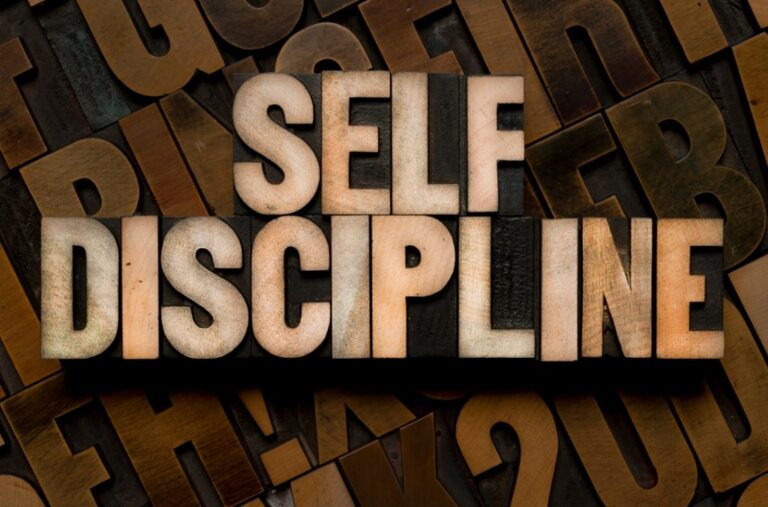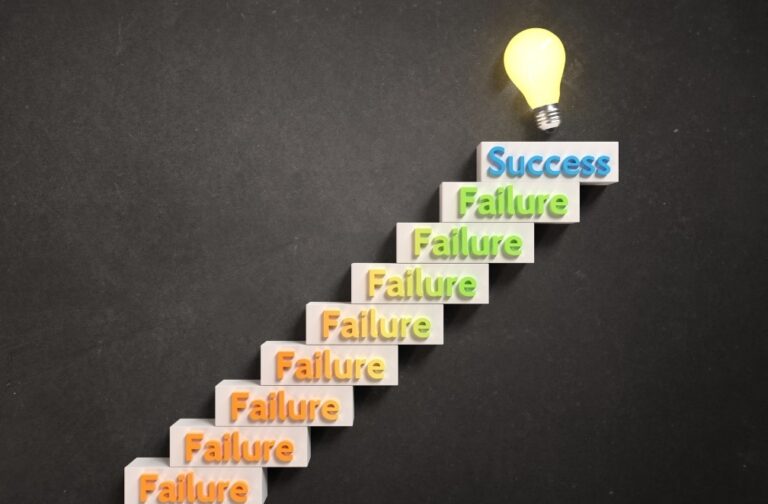Decoding Chanakya Niti: 5 Life Lessons for Personal Growth.

Part 1: Decoding Chanakya Niti – The Power of Self-discipline 🚀🧠💪
Introduction🌟

Have you ever wondered what sets successful individuals apart from the rest? How do they achieve their goals and maintain a sense of direction in life? One of the key factors lies in the teachings of the ancient Indian philosopher, Chanakya, and his profound insights on personal growth. In this blog, we will delve into the first life lesson from Chanakya Niti – “The Power of Self-discipline.” Let’s embark on a journey of self-discovery and uncover the secrets of mastering self-discipline for personal growth. 🗝️🌱
Lesson 1: “The Power of Self-discipline” 🎯🎯🎯
Question 1: What is the significance of self-discipline according to Chanakya? 🤔📚
Chanakya believed that self-discipline is the cornerstone of success. It is the ability to control one’s impulses, emotions, and actions in pursuit of higher goals. Self-discipline allows individuals to stay focused, make consistent progress, and resist distractions or temptations that may hinder their journey towards personal growth. 💡💡💡
Question 2: How does self-discipline contribute to achieving goals? 🚀🏆🎯
Self-discipline provides a strong foundation for achieving goals by instilling perseverance and determination. It helps individuals overcome obstacles and maintain consistency in their efforts, even in the face of challenges. With self-discipline, one can build good habits, manage time efficiently, and prioritize tasks effectively, leading to steady progress towards their objectives. 🚀💪🌟
Question 3: What are some practical tips to develop self-discipline in daily life? 📝🚀💡
a) Set Clear Goals: Define your long-term and short-term goals, and break them down into smaller, manageable tasks. This clarity will help you stay focused and motivated. 🗓️🎯
b) Create a Routine: Establish a daily routine that incorporates time for work, rest, exercise, and personal development. Following a structured schedule can enhance self-discipline. 🕰️📅🏋️♂️
c) Practice Mindfulness: Be aware of your thoughts and actions. Mindfulness enables you to identify distractions and redirect your focus back to your goals. 🧠🧘♀️👀
d) Reward Yourself: Celebrate your achievements, no matter how small. Rewarding yourself reinforces positive behavior and strengthens your commitment to self-discipline. 🎉🎊🎈
e) Learn from Setbacks: Embrace failures as opportunities for growth. Analyze what went wrong, learn from it, and use the experience to improve your self-discipline. 🔄📈💪
Conclusion 📝🌟
In Part 1 of “Decoding Chanakya Niti,” we explored the profound lesson of “The Power of Self-discipline.” Chanakya’s teachings remind us that success is not an accident; it is the result of consistent effort and self-discipline. By practicing self-discipline, individuals can stay on track, overcome challenges, and achieve their aspirations for personal growth. In Part 2, we will delve into the next life lesson – “Embracing Change and Adaptability” – to discover how flexibility and adaptability contribute to a fulfilling life journey. Stay tuned for the next installment and embark on a transformative path guided by the wisdom of Chanakya! 🚀🌱💡
Part 2: Decoding Chanakya Niti – Embracing Change and Adaptability 🌟🌊🌱

Introduction 🚀🌈🌠
Life is an ever-changing journey, and the ability to adapt to change is crucial for growth and progress. In Part 2 of “Decoding Chanakya Niti,” we will explore the profound life lesson of “Embracing Change and Adaptability” from the wisdom of Chanakya. Let’s learn how flexibility and adaptability can empower us to navigate life’s challenges and opportunities with grace and resilience. 🧭🌌🚀
Lesson 2: “Embracing Change and Adaptability” 🌊🌿🎓
Question 1: What did Chanakya believe about embracing change? 🤔🌠
Chanakya understood that change is inevitable, and those who resist it are bound to face difficulties. Embracing change is not a sign of weakness but a testament to one’s strength and open-mindedness. By accepting change, individuals can welcome new opportunities and stay ahead in the dynamic landscape of life. 🚀💡🌈
Question 2: How does adaptability contribute to a fulfilling life journey? 🌱🌅🌟
Adaptability empowers individuals to thrive in diverse situations. It allows them to quickly adjust their mindset and actions in response to changing circumstances. Those who embrace adaptability can turn challenges into opportunities, learn from experiences, and continuously grow as individuals. 🌊🌄💪
Question 3: Can you provide examples of individuals who succeeded through adaptability? 🌍🏆🌱
a) Steve Jobs: The late co-founder of Apple Inc. demonstrated adaptability by revolutionizing technology with innovative products like the iPhone and iPad. His ability to foresee market trends and adapt Apple’s offerings accordingly led to immense success.
b) Oprah Winfrey: The media mogul faced numerous challenges on her journey, but she adapted her approach and content to connect with her audience better. This adaptability contributed to her widespread influence and success.
c) Nelson Mandela: As a renowned leader, Mandela showed extraordinary adaptability in transforming South Africa through reconciliation and forgiveness after years of apartheid. His ability to embrace change paved the way for a new era of equality and unity. 🌍🌟🤝
Conclusion📝🌠🚀
In Part 2, we explored the timeless wisdom of “Embracing Change and Adaptability” from Chanakya Niti. By embracing change and remaining adaptable, individuals can gracefully navigate life’s ups and downs, harnessing its ever-changing landscape to grow, evolve, and achieve their fullest potential. In Part 3, we will delve into the next life lesson – “The Art of Decision-making” – to uncover Chanakya’s insights on making informed choices to shape a purposeful and fulfilling life. Stay tuned for more life-transforming wisdom from the great philosopher! 🌌🌈🚀
Part 3: Decoding Chanakya Niti – The Art of Decision-making 🤔📈🎯

Introduction 🚀🌠💫
Life is a series of choices, and the decisions we make shape our destiny. In Part 3 of “Decoding Chanakya Niti,” we explore the profound life lesson of “The Art of Decision-making.” Chanakya’s insights on making informed choices can empower us to navigate life’s complexities and lead us to a purposeful and fulfilling life. Let’s delve into the wisdom of this ancient philosopher and learn how to make decisions that align with our aspirations and values. 🧭🚀📜
Lesson 3: “The Art of Decision-making” 📈🎨🤝
Question 1: What are Chanakya’s principles of effective decision-making? 🤔📚
According to Chanakya, effective decision-making involves careful analysis and consideration. Some key principles include:
– Assessing Consequences: Consider the potential outcomes and consequences of each choice before making a decision.
– Gathering Information: Gather relevant information and insights to make an informed choice.
– Listening to Others: Seek advice and perspectives from trusted individuals to gain a comprehensive understanding of the situation.
– Trust in Intuition: Intuition can guide you when rational analysis alone is insufficient. Learn to trust your instincts.
Question 2: Why is informed decision-making important for personal growth? 🌱📈🎯
Informed decision-making is vital for personal growth as it ensures that choices align with long-term goals and values. By making informed decisions, individuals can avoid impulsive actions that may lead to regret. Informed choices also empower individuals to take responsibility for their lives and create positive outcomes. 🚀💡🌟
Question 3: How can we enhance our decision-making skills? 💪🎨🌟
a) Practice Critical Thinking: Develop your analytical and critical thinking abilities to evaluate situations objectively.
b) Learn from Past Decisions: Reflect on past decisions and their consequences to learn and improve.
c) Seek Diverse Perspectives: Consider viewpoints different from your own to gain a broader understanding of a situation.
d) Stay Composed: Avoid making decisions impulsively under stress; take time to think things through.
Conclusion 📝🌌🚀
In Part 3, we explored “The Art of Decision-making” from the wisdom of Chanakya. By following principles such as assessing consequences, gathering information, seeking advice, and trusting intuition, individuals can make informed decisions that lead to personal growth and fulfillment. In Part 4, we will delve into the next life lesson – “Building Strong Relationships” – to discover how meaningful connections contribute to a thriving life journey. Stay tuned for more transformative insights from the ancient sage! 🌠🤝🌌
Part 4: Decoding Chanakya Niti – Building Strong Relationships🤝💖🌟

Introduction 🌈🌟💫
Human connections form the essence of a fulfilling life. In Part 4 of “Decoding Chanakya Niti,” we delve into the profound life lesson of “Building Strong Relationships.” Chanakya’s teachings emphasize the significance of nurturing meaningful connections with others. Let’s explore how fostering strong relationships can enrich our lives and contribute to personal growth and happiness. 🌱💕🚀
Lesson 4: “Building Strong Relationships”** 🤝💞🌟
Question 1: What were Chanakya’s insights on nurturing relationships? 🤔📚
Chanakya believed that strong relationships are built on trust, respect, and mutual understanding. He emphasized the value of compassion, empathy, and genuine care for others. Nurturing relationships requires sincere efforts to support and uplift each other in both good and challenging times. 🌟💖🤝
Question 2: How do positive relationships contribute to personal growth? 🌱🌻💪
Positive relationships provide emotional support and a sense of belonging, fostering personal growth and resilience. They offer opportunities for learning, self-discovery, and self-improvement. Being surrounded by uplifting individuals can inspire us to achieve our potential and pursue our dreams with confidence. 🌈🌠📈
Question 3: What are some strategies to foster strong and meaningful connections? 🌼🌱🏞️
a) Active Listening: Practice active listening to understand others’ perspectives and feelings.
b) Show Empathy: Empathize with others’ experiences and emotions to strengthen your bond.
c) Express Appreciation: Express gratitude and appreciation for the positive impact others have on your life.
d) Resolve Conflicts Respectfully: Handle conflicts with understanding and respect, aiming for a win-win resolution.
e) Be Reliable: Be dependable and fulfill your commitments to build trust with others.
Conclusion 📝🌸🚀
In Part 4, we delved into the valuable lesson of “Building Strong Relationships” from Chanakya Niti. Fostering meaningful connections enriches our lives with love, support, and joy, contributing to personal growth and well-being. In Part 5, we will explore the next life lesson – “Turning Failures into Stepping Stones” – to understand how resilience and learning from setbacks can propel us forward on our journey of growth and success. Stay tuned for more transformative wisdom from the ancient sage! 🌠💖🌱
Part 5: Decoding Chanakya Niti – Turning Failures into Stepping Stones 🚀🌠🔥

Introduction 🌈🌟💫
Failure is an inevitable part of life, but it does not define us. In Part 5 of “Decoding Chanakya Niti,” we explore the profound life lesson of “Turning Failures into Stepping Stones.” Chanakya’s wisdom reminds us that setbacks can be transformative opportunities for growth and resilience. Let’s learn how to embrace failures, learn from them, and use them as stepping stones towards success. 🌱🚀💪
Lesson 5: “Turning Failures into Stepping Stones”** 🌄💡🌟
Question 1: How did Chanakya view failure and resilience? 🤔📚
Chanakya believed that failure is a natural part of the journey towards success. He emphasized the importance of resilience – the ability to bounce back after facing adversity. Resilience enables individuals to persevere through tough times and emerge stronger from challenges. 🔥🚀🌟
Question 2: What is the role of failure in personal development? 🌱🎓🏆
Failure serves as a valuable teacher, providing essential lessons and insights. It teaches humility, determination, and the importance of continuous learning. Embracing failure as an opportunity for growth empowers individuals to refine their strategies, hone their skills, and ultimately succeed in their endeavors. 📈🎯💡
Question 3: How can we learn from failures and use them as stepping stones? 📚💡🚀
a) Analyze Mistakes:** Reflect on the factors that led to the failure and identify areas for improvement.
b) Adopt a Growth Mindset:** Embrace challenges as opportunities to learn and grow, rather than seeing them as roadblocks.
c) Setbacks as Feedback:** Treat setbacks as feedback to refine your approach and work towards better outcomes.
d) Stay Persistent: Maintain perseverance and determination, even in the face of obstacles.
e) Seek Support:** Seek support and guidance from mentors or supportive individuals who can offer valuable insights.
Conclusion 📝🌠🚀
In Part 5, we explored the empowering lesson of “Turning Failures into Stepping Stones” from Chanakya Niti. Embracing failure with resilience and a growth mindset transforms setbacks into opportunities for learning and personal development. Failure does not mark the end of the journey; instead, it serves as a catalyst for growth and eventual success. In Part 6, the final chapter of “Decoding Chanakya Niti,” we will conclude our transformative journey with a reflection on the timeless wisdom of this ancient sage. Stay tuned for the grand finale! 🌟🗝️🌌
Part 6: Decoding Chanakya Niti – Embracing Timeless Wisdom 📚🌟🌌

Introduction 🚀🌈💫
In the final installment of “Decoding Chanakya Niti,” we reflect on the timeless wisdom imparted by the ancient Indian philosopher, Chanakya. Throughout this journey, we have explored invaluable life lessons that have the power to transform our lives and propel us towards personal growth and success. Let’s take a moment to consolidate our learnings and embrace the enduring teachings of Chanakya. 🧭🌱🚀
Question 1: What makes Chanakya’s teachings relevant even in modern times? 🤔📚
Chanakya’s teachings remain timeless due to their profound understanding of human nature and the principles of success and growth. His emphasis on self-discipline, adaptability, effective decision-making, building strong relationships, learning from failures, and the art of persuasion and influence are enduring pillars of personal and professional development. 🌌🚀💪
Question 2: How can we apply Chanakya’s wisdom in our daily lives? 🌱💡📝
a) Reflect and Internalize: Take time to reflect on Chanakya’s teachings and internalize them in your mindset and actions.
b) Set Goals and Prioritize: Apply the principles of effective decision-making to set clear goals and prioritize your endeavors.
c) Embrace Change: Cultivate adaptability to embrace change as a natural part of life’s journey.
d) Nurture Relationships: Strengthen your connections with others through empathy, trust, and positive influence.
e) Learn from Setbacks: Embrace failures as stepping stones for growth and continuous improvement.
Question 3: How can we pass on Chanakya’s wisdom to future generations? 🌍🌱🌠
a) Teach by Example: Demonstrate the values and teachings of Chanakya in your own actions and behavior.
b) Share Stories and Lessons: Narrate inspiring stories from Chanakya’s life and teachings to impart valuable lessons.
c) Encourage Learning: Encourage curiosity and a thirst for knowledge among the younger generation.
d) Promote Resilience: Teach the importance of resilience and adaptability in navigating life’s challenges.
Conclusion 📝🌌🌠
In the journey of “Decoding Chanakya Niti,” we have explored the profound wisdom of this ancient philosopher. His teachings on self-discipline, adaptability, decision-making, relationships, resilience, and influence hold eternal value in our pursuit of personal growth and fulfillment. By embracing Chanakya’s timeless wisdom, we can lead purposeful and meaningful lives, making a positive impact on ourselves and others. As we conclude this transformative voyage, may the wisdom of Chanakya continue to guide us towards a brighter future. 🌟🚀📚
Conclusion: Embracing Chanakya’s Wisdom for Personal Growth 🌟🌱🚀

A. Recap the 5 Life Lessons from Chanakya Niti for Personal Growth 📚💡🌠
Throughout our journey of “Decoding Chanakya Niti,” we have explored five profound life lessons that hold the key to personal growth and empowerment:
1. The Power of Self-discipline: Chanakya reminds us that self-discipline is the foundation of success. By staying focused, managing time wisely, and resisting distractions, we can make steady progress towards our goals.
2. Embracing Change and Adaptability: Change is inevitable, and those who embrace it with adaptability thrive in life. By learning from experiences and being open to new opportunities, we can navigate life’s challenges with resilience.
3. The Art of Decision-making: Effective decision-making involves thoughtful analysis and understanding consequences. Making informed choices aligned with our values and aspirations propels us towards success.
4. Building Strong Relationships: Nurturing meaningful connections based on trust, empathy, and positive influence enriches our lives and fosters personal growth and fulfillment.
5. Turning Failures into Stepping Stones: Embracing failure with resilience and a growth mindset provides valuable lessons for continuous improvement and eventual success.
B. Highlight the Enduring Relevance of Chanakya’s Wisdom in Modern Life 🌍🌌💫
Chanakya’s wisdom transcends time, remaining profoundly relevant in modern life. His teachings resonate with individuals seeking fulfillment and success in a rapidly changing world. The principles of self-discipline, adaptability, effective decision-making, building relationships, and embracing failure as a catalyst for growth guide us towards balanced and purposeful living.
C. Encourage Readers to Apply These Teachings to Their Journey of Self-improvement 🌱🚀💪
As we conclude this transformative journey, let us take these timeless teachings to heart and embark on a journey of self-improvement and personal growth. Apply the lessons of self-discipline to stay focused on your goals. Embrace change with adaptability and make informed decisions to shape a fulfilling life. Nourish meaningful relationships with empathy and positive influence. Embrace failures as opportunities to learn and evolve.
Incorporate Chanakya’s wisdom into your daily life, and witness the positive impact on your journey towards success and contentment. By integrating these teachings into our existence, we can make a profound difference in our lives and the lives of those around us.




